# ai
12 posts in `ai` tag
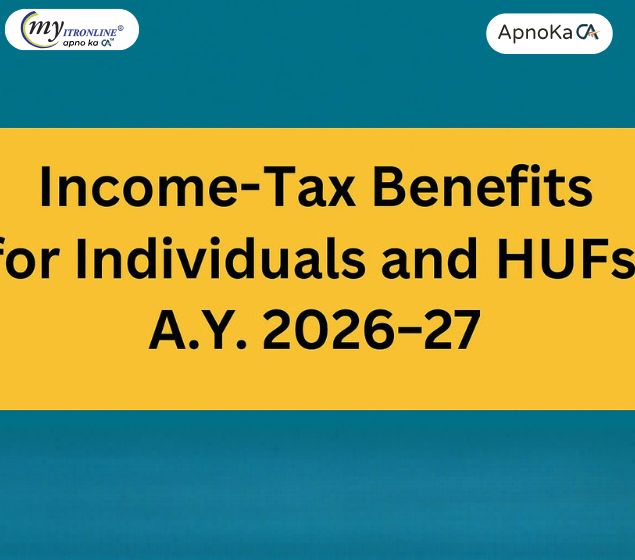
Income Tax Benefits for Individuals and HUFs A.Y. 2026–27
A simplified guide to income tax benefits available to Individuals and Hindu Undivided Families (HUFs) for A.Y. 2026–27. Covers exemption limits, rebates, popular deductions, and simplified tax schemes to help taxpayers plan better and save legally.

CBI Nabs GST Officer in Nashik for 5 Lakh Bribe 19 Lakh Seized
The CBI has arrested a Superintendent of CGST & Central Excise in Nashik for allegedly accepting a 5 lakh bribe related to an ITC case. Raids led to the recovery of ₹19 lakh in cash and key documents. The officer is currently in police custody.
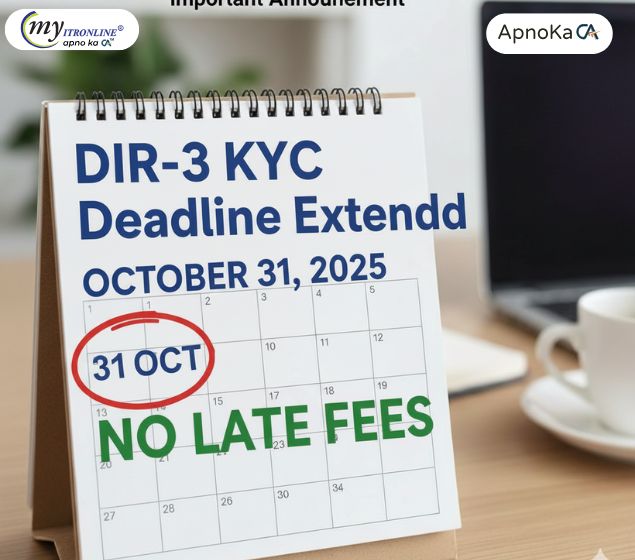
DIR-3 KYC Deadline Extended to October 31, 2025 – No Late Fees
The Ministry of Corporate Affairs (MCA) has extended the DIR-3 KYC deadline to October 31, 2025. This allows directors to file without incurring the ₹5,000 late fee and avoid DIN deactivation. Learn who needs to file, which form to use, and why early action is crucial.

GST Removed on Insurance But Agents Are Paying the Price
The government has eliminated the 18% GST on life and health insurance premiums effective October 1, 2025. While this benefits customers by lowering costs, insurance agents—especially those working with private insurers—are facing commission cuts of up to 18% due to the loss of input tax credit. Public insurers are absorbing the GST cost, but private companies are passing it on to agents.

ICAI Membership Fee Alert: 1.20 Lakh CAs Risk Cancellation Pay Before September 30, 2025
Nearly 1.20 lakh out of 5 lakh ICAI members are at risk of losing their Membership and Certificate of Practice (COP) due to non-payment of annual fees for 2025-26. The Institute has set a firm deadline of September 30, 2025, after which memberships will be automatically cancelled. This will result in immediate loss of practice rights, audit signing authority, and professional standing. Members can pay securely through the ICAI eServices portal using multiple payment options including UPI, net banking, and cards. With just days remaining, immediate action is essential to avoid cancellation and the hassle of reactivation procedures.

CBI Court Jails Senior Tax Officials in 15 Lakh Bribery Case
A landmark judgment from Jodhpur’s CBI court has sentenced two senior Income Tax officials to four years in prison and a ₹1.1 lakh fine each for accepting a 15 lakh bribe in a 2015 corruption case.
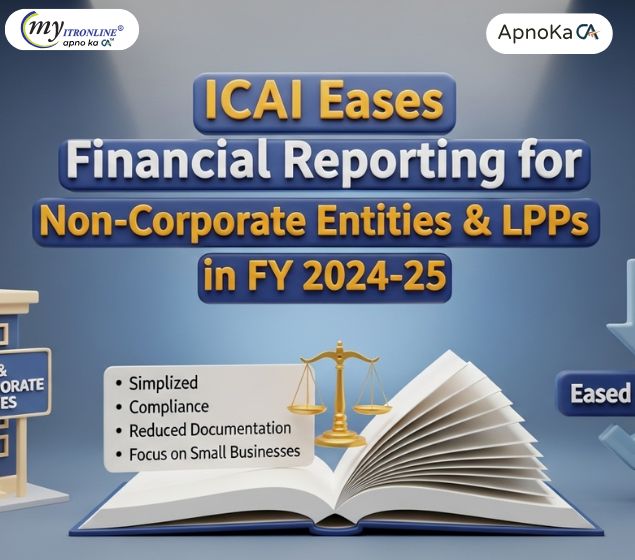
ICAI Eases Financial Reporting for Non-Corporate Entities & LLPs in FY 2024-25
The Institute of Chartered Accountants of India (ICAI) has announced a significant, temporary compliance relaxation for non-corporate entities and Limited Liability Partnerships (LLPs) for the Financial Year 2024-25. This allows these entities to optionally adopt updated guidance notes on financial statements, aiming to reduce administrative burden while maintaining transparency and accuracy. This flexibility ensures that core accounting standards remain paramount, offering businesses a choice in their reporting approach for the upcoming fiscal year.

Crypto Firms in India Must Now Pass Security Audits: What It Means
India's Financial Intelligence Unit (FIU-IND) has mandated comprehensive cybersecurity audits for all Virtual Digital Asset (VDA) service providers, including crypto exchanges and custodians. These audits, to be conducted by CERT-In approved auditors, signal a major shift towards a more secure and regulated crypto ecosystem in India. The move aims to combat cybercrime, money laundering, and boost investor confidence, bringing the crypto sector in line with traditional financial regulations. Firms must now prioritize compliance, update security protocols, and prepare for the new PACT certification, marking an end to lax security practices.
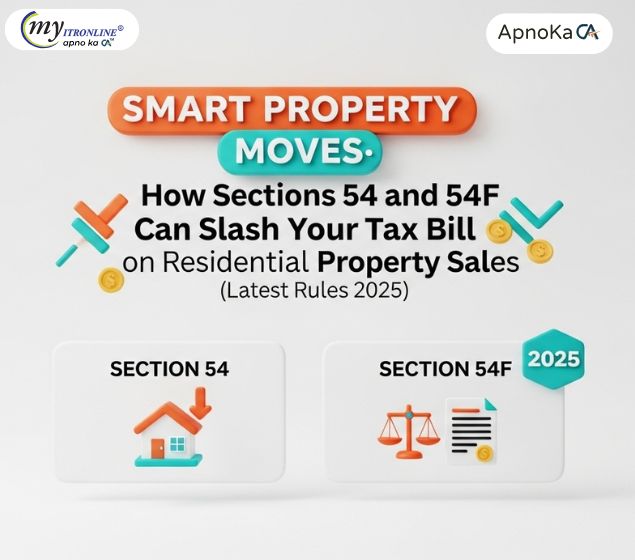
Smart Property Moves: How Sections 54 and 54F Can Slash Your Tax Bill on Residential Property Sales (Latest Rules 2025)
Discover how Sections 54 and 54F of the Indian Income Tax Act provide crucial tax exemptions on Long-Term Capital Gains from property sales. This comprehensive guide covers the latest rules for 2025, including the new ₹10 Crore cap and the two-house option under Section 54, offering practical examples and a step-by-step plan for effective tax planning.
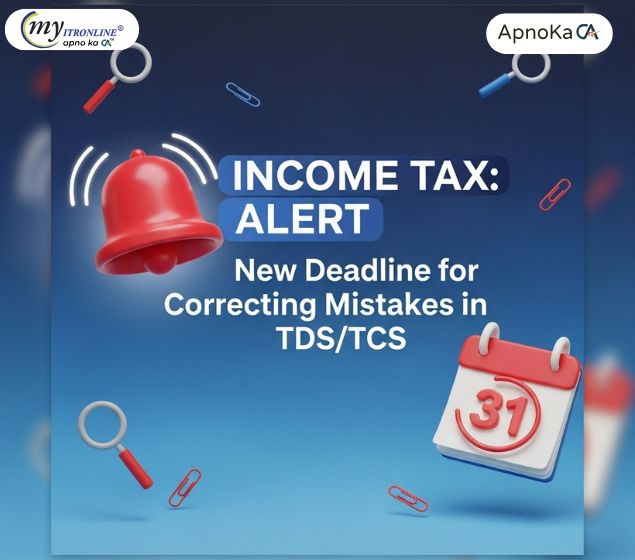
Income Tax Alert: New Deadline for Correcting Mistakes in TDS/TCS
The Income Tax Department has given a final chance to correct mistakes in TDS/TCS returns for FY 2018–19 to FY 2023–24. The correction deadline is March 31, 2026. After this, only 2 years will be allowed for revisions, and unresolved errors may lead to tax notices.

Don't Pay 20% LTCG Tax! How to Use Sections 54, 54EC, 54F
This blog post provides a comprehensive yet easy-to-understand guide to saving Long-Term Capital Gains (LTCG) tax arising from property sales in India. It delves into three crucial sections of the Income Tax Act – Section 54, Section 54EC, and Section 54F – detailing their eligibility criteria, investment options, time limits for reinvestment, and lock-in periods. The post also includes a comparative table and a practical example to illustrate how these exemptions work, empowering taxpayers to make informed decisions and potentially reduce their tax liabilities.

Breaking: No Relief in GST, A Big Blow to the Indian Media Industry
This blog post analyzes the impact of the latest GST reforms on the Indian media industry. It highlights how, despite appeals from media and advertising groups, the sector received no significant relief regarding tax parity for digital publications, input tax credit access, or flexible tax payment timing. The article details the approved reforms that benefited other sectors and consumers, contrasting them with the ignored pleas of the media, leading to concerns about worsening the digital divide, liquidity pressure, and hindered cost recovery. It concludes that the lack of targeted reforms poses a major setback for innovation, job creation, and overall growth in the Indian media landscape.
